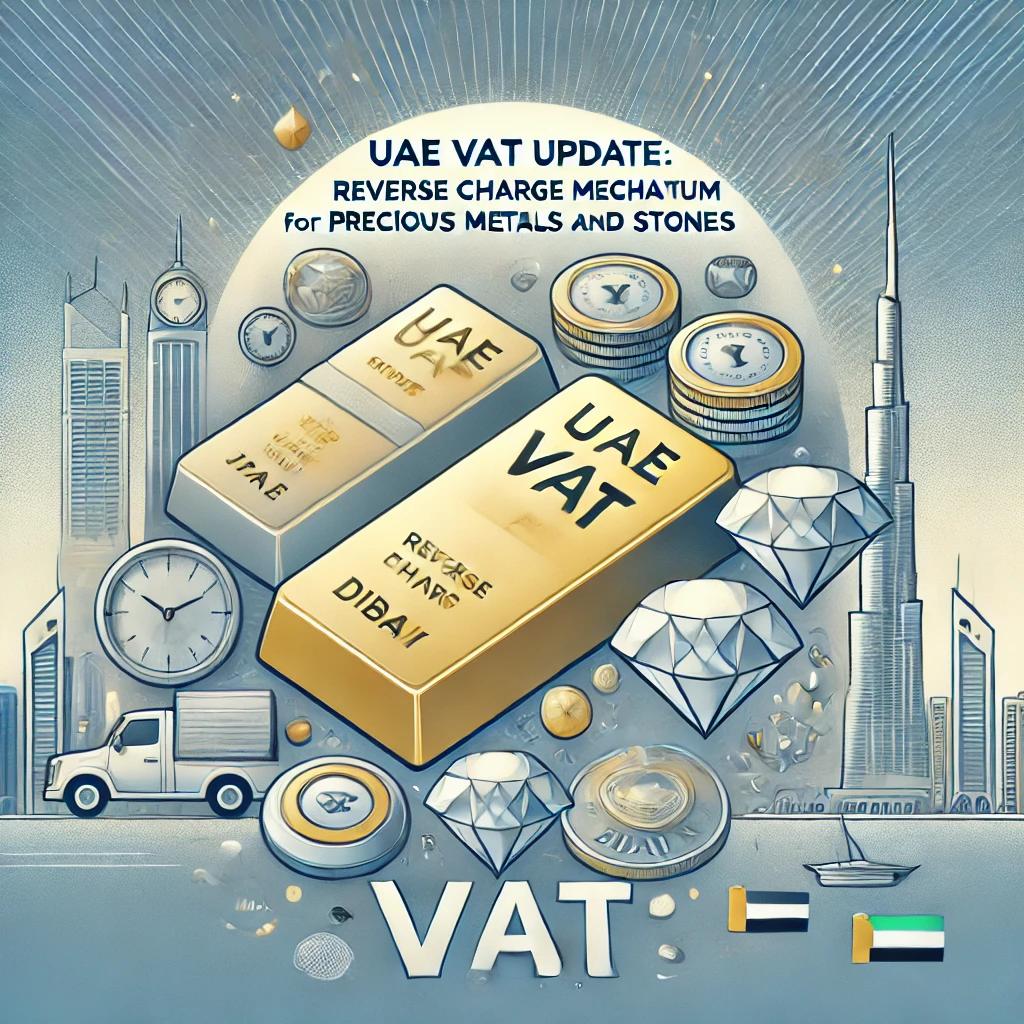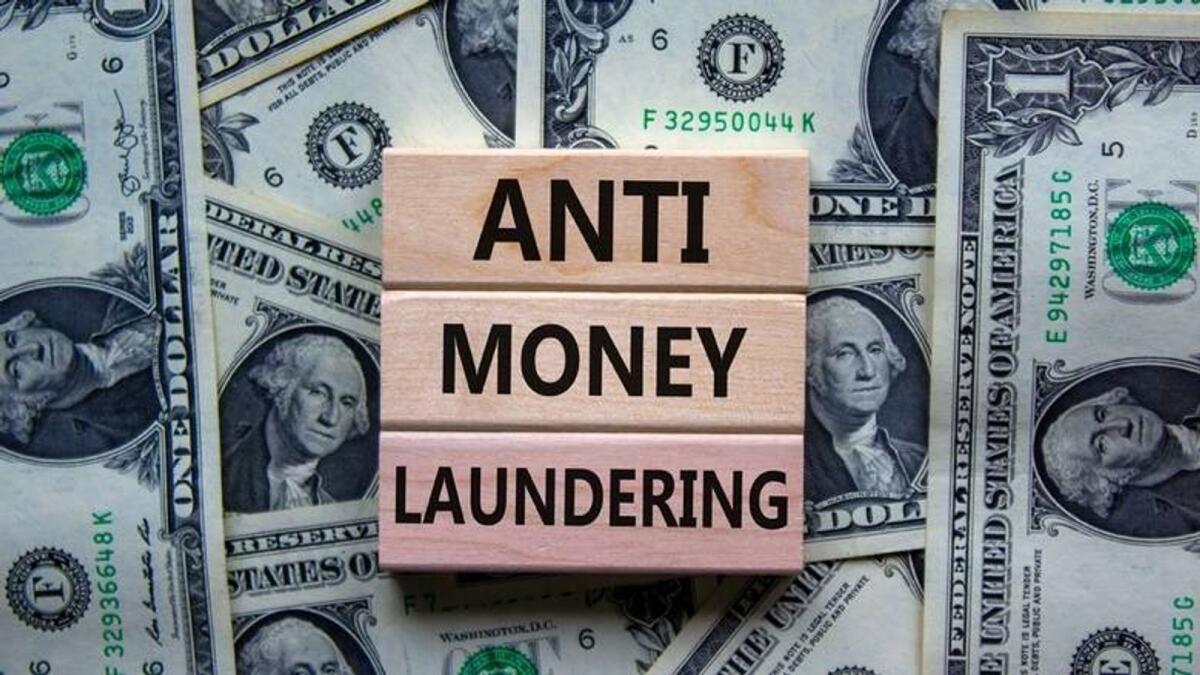UAE VAT Update: Reverse Charge Mechanism for Precious Metals and Stones
Publish On : 17-01-2025

The UAE continues to refine its tax framework to foster a business-friendly environment. One of the latest developments in this regard is Cabinet Decision No. (127) of 2024, which expands the scope of the Reverse Charge Mechanism (RCM) under the UAE’s Value Added Tax (VAT) system. This blog will guide you through the key highlights and implications of this decision for businesses operating in the precious metals and stones sector.
What Is the Reverse Charge Mechanism (RCM)?
The Reverse Charge Mechanism is a VAT simplification measure where the responsibility for reporting and remitting VAT is shifted from the supplier to the buyer. In this case, VAT-registered businesses purchasing certain goods or services are required to account for VAT instead of the supplier charging VAT upfront.
Key Highlights of Cabinet Decision No. (127) of 2024
Expanded Scope
The RCM now applies to a broader range of precious metals and stones, beyond gold and diamonds.
Includes supplies of silver, platinum, palladium, and other precious stones like rubies, sapphires, emeralds, and pearls.
B2B Transactions Only
The decision applies to transactions between VAT-registered businesses in the UAE. Suppliers are no longer required to charge VAT for qualifying transactions.
Repeal of Previous Decision
This decision replaces Cabinet Decision No. (25) of 2018, which previously limited the RCM to gold and diamonds.
Buyer’s Responsibility
Buyers are now required to declare the VAT on both the purchase and sale of goods in their VAT returns, simplifying the compliance process for suppliers.
Benefits for Businesses
Simplified Compliance
The updated RCM reduces the administrative burden on suppliers, streamlining VAT reporting.
Improved Cash Flow
Suppliers no longer need to charge and remit VAT, allowing them to maintain better cash flow.
Competitiveness
By creating a more efficient tax environment, this decision enhances the UAE’s appeal as a global hub for precious metals and stones trading.
What Should Businesses Do Next?
Review Your Contracts
Assess existing agreements to determine how this change impacts your transactions.
Update Accounting Systems
Ensure your invoicing and accounting processes reflect the RCM’s requirements.
Educate Your Team
Train your finance and compliance teams to handle VAT reporting under the updated mechanism.
Seek Professional Advice
Engage with VAT consultants to ensure compliance and optimize your tax strategy.
Why This Matters
The UAE government’s decision underscores its commitment to supporting the growth and competitiveness of the precious metals and stones sector. By reducing administrative barriers, the new rules aim to create a more efficient and attractive trading environment.
Need Assistance?
For more detailed insights and professional guidance on how these changes affect your business, reach out to us. Our experts at Sheikh Anwar Accounting and Auditing LLC are here to help you navigate the complexities of VAT compliance.
🌐 Visit us: www.sa-auditors.com
Stay informed and compliant with the latest UAE VAT updates. Let us help you stay ahead in today’s dynamic business environment!
Recent Articles

The Ultimate Guide To Selecting External Auditors
Publish On : 30-07-2024

"The Importance of Regular Anti-Money Laundering Audits"
Publish On : 31-07-2024

List of VAT-Exempt Goods and Services in UAE
Publish On : 01-08-2024

How Transaction Monitoring Improves AML Compliance
Publish On : 02-08-2024

Navigating the AML Software Landscape
Publish On : 02-08-2024

Economic Substance in the UAE
Publish On : 19-07-2024

AML Compliance Services in Dubai, UAE
Publish On : 22-07-2024
